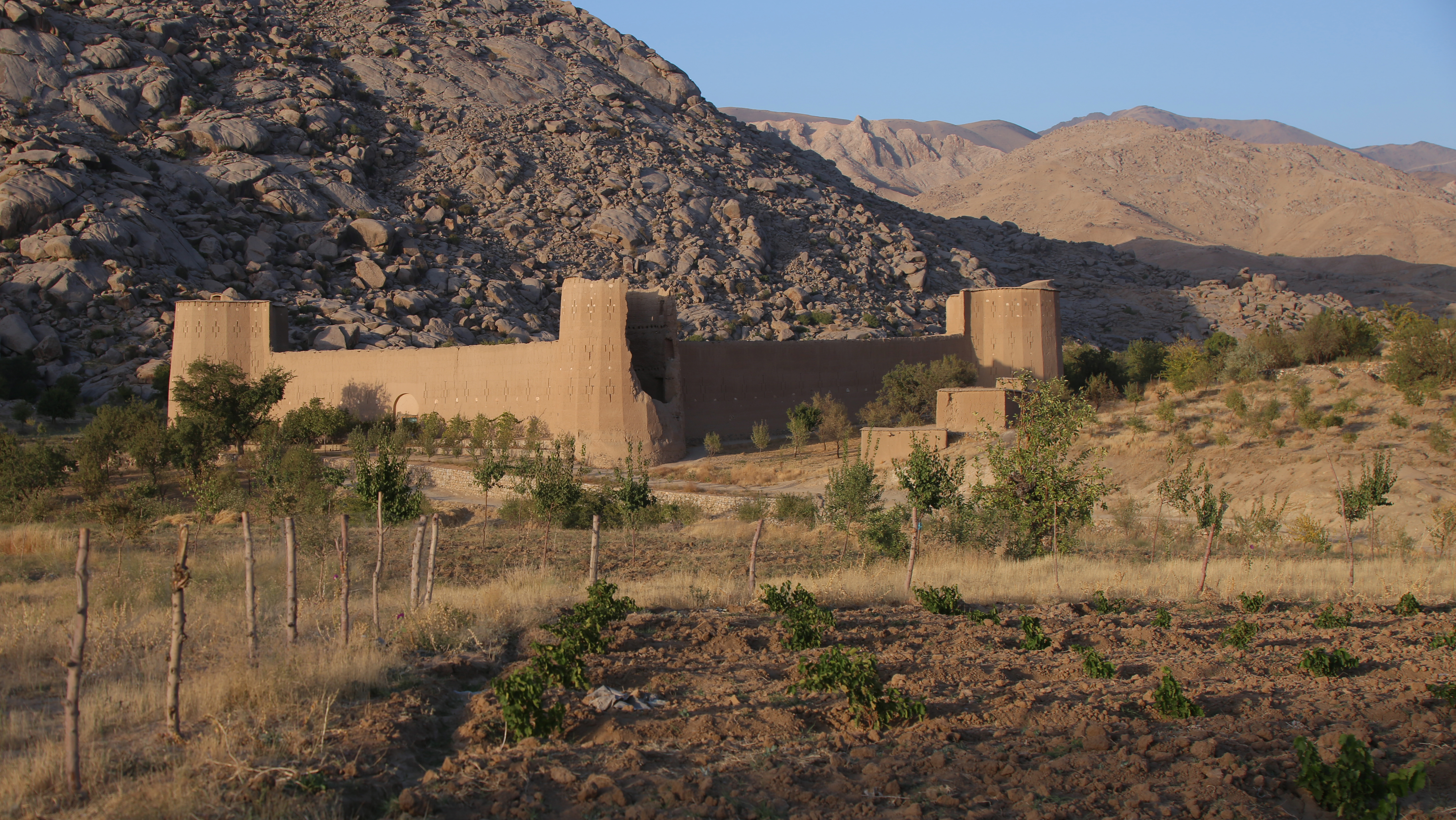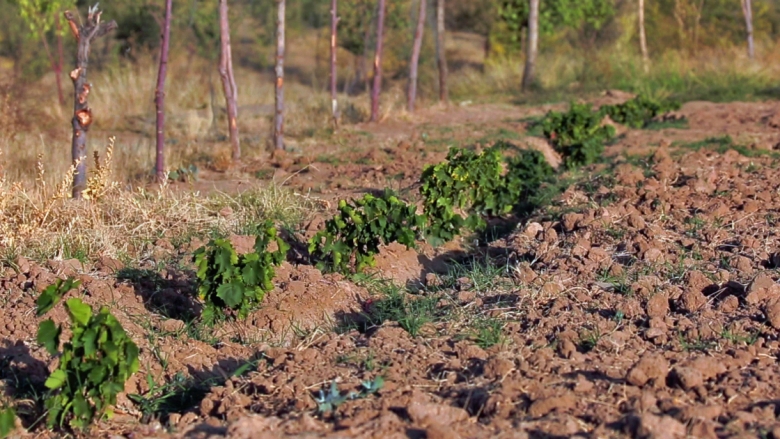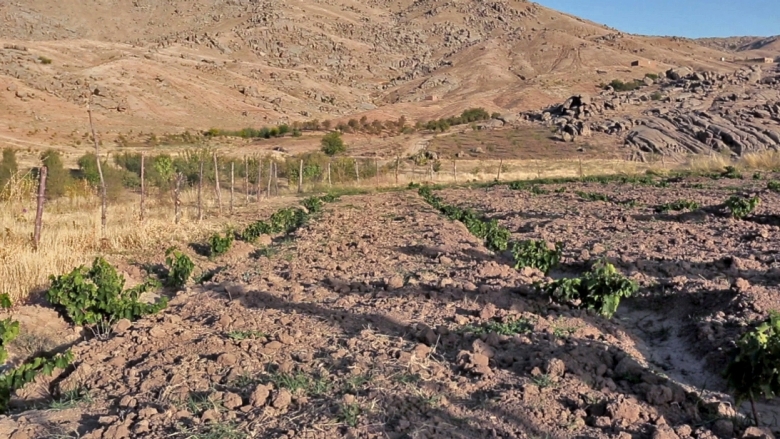NILI DISTRICT, Daykundi Province – Shrubby trees, boxy mud-brick houses, and bare sheaths of rock dot the stark landscape on the two-hour rocky drive from Daykundi’s provincial capital, Nili, to Chahr Asban village.
Niamatullah’s family has farmed here for decades, and the orchards and gardens lie a short walk from the compound walls. Like all the local villagers, the family has used traditional horticultural methods that stretch back generations to care for their crops. “All of the villagers here earn their income from agriculture and livestock,” Niamatullah says. “We have been using traditional horticultural systems.”
Niamatullah has five jeribs, or one hectare, of land, where he has planted grapevines, and almond, and apples trees, using improved practices and systems with the help of the National Horticulture and Livestock Project (NHLP). “For the past year, NHLP has been here and introduced improved management technologies and practices for growing grapes,” he says. “The people have seen this and now they are eager to join the NHLP schemes and use these new methods next year.”
He was the only villager who decided to participate when NHLP launched its activities in Chahr Asban, home to 500 families, in 2015. Ali, an officer in Nili district, says that people were not eager because they did not trust NHLP and had not previously seen the advantages of new technologies and farming practices introduced by NHLP. “They doubted the project because there had never been long-term support here,” Ali says. After seeing NHLP’s activities and Niamatullah’s success with the project, villagers are eager to join. “Now people trust NHLP,” he says.
Niamatullah’s success in adopting modern methods is demonstrated in the grapes he is growing, which is proving profitable. “Before NHLP, all the orchards in the village were using the low productive traditional methods and, thus, income was low,” he says. He expects this year’s harvest to sell for triple or even quadruple the price of last year’s crop. “I think that this project will increase the villagers’ income and their situation in life will be better,” he adds.



